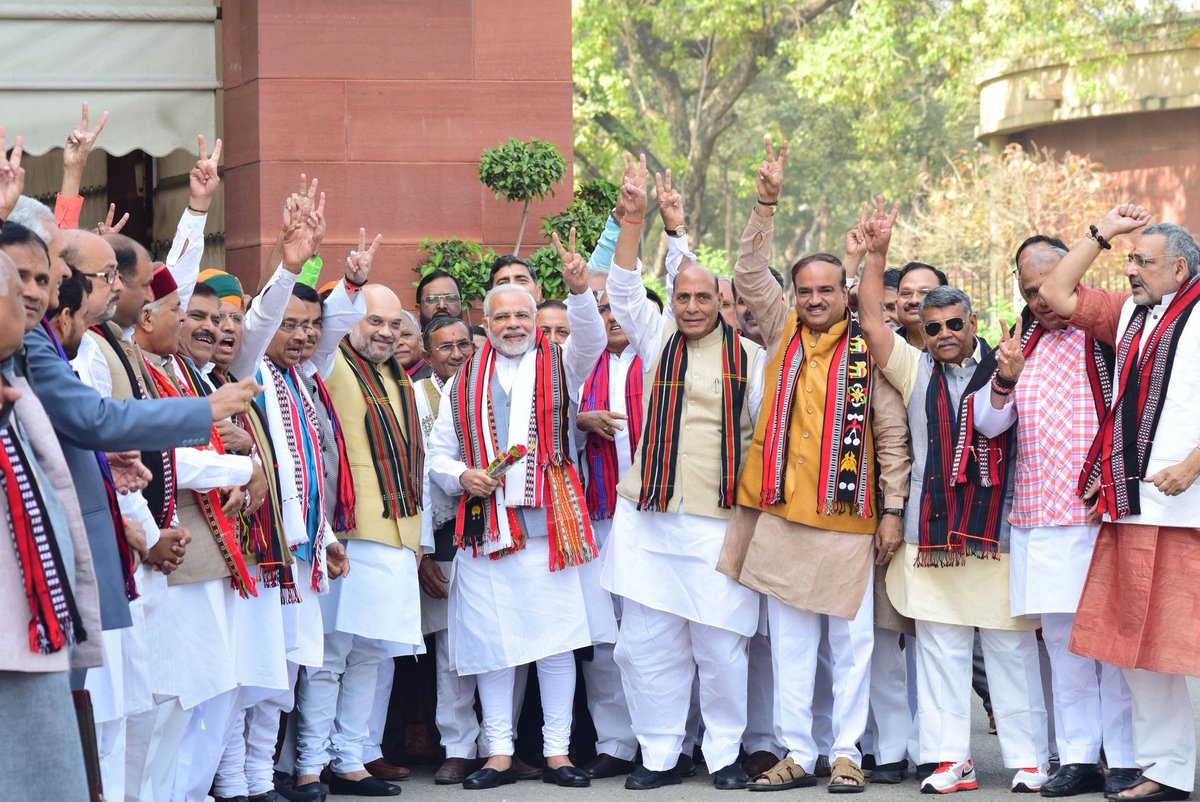
New Delhi. The first 50 days of the Modi 2.0 saw the focus on foreign policy and strengthening defence forces with the Centre keen that state governments pitch in for boosting capital expenditure on defence to better equip the country’s armed forces and the Army’s effort for major restructuring to be launched with the draft government sanction letter for reorganisation of the Army Headquarters (AHQ) expected by the month-end.
Prime Minister Narendra Modi made it amply clear that his government’s focus on foreign policy with regard to neighbours as well as others, would remain intact.
The first indication of the same could be seen when he was sworn in as the Prime Minister for second term and he invited leaders of Bay of Bengal Initiative for Multi-Sectoral Technical and Economic Cooperation (BIMSTEC) nations to attend the swearing-in ceremony. This was a slight departure from the invitation extended to South Asian Association for Regional Cooperation (SAARC) nations, which included Pakistan.
Soon after the swearing-in ceremony, Prime Minister Modi visited Maldives during which he reached out to the neighbouring country, and this was reciprocated when he was conferred the country’s highest civilian honour for foreign nationals, the Order of Nishan Izzuddeen.
After the Maldives, Modi visited Sri Lanka and was the first world leader to visit the shrine of St Anthony, which was recently attacked by terrorists. He engaged with several political leaders of the country during his visit.
On the Defence front, the Army Headquarters (AHQ) restructuring is the first of the four measures being undertaken as part of the transformation of the force.
Under the plan, the Master-General Ordnance will report to the Deputy Chief to bring all ammunition under one head.
The Army now has two Deputy Chiefs, one for information systems and training and the other for planning and systems. These functions are being brought under one authority to avoid overlapping.

In another major change at the AHQ, the Directorates of Military Operations, Military Intelligence and Operational Logistics will report to the Deputy Chief (Strategy). The Perspective Planning Directorate will also report to this Deputy Chief. The third Deputy Chief, Information Systems, will look after all technology and cyber-related issues.
A new post of Additional Director-General (ADG), Vigilance, is being created, and he will report to the Army chief.
Meanwhile, in a move to boost defence, the Centre is keen that state governments pitch in for boosting capital expenditure on defence to better equip the country’s armed forces. The desire for this radical change in defence funding was behind last week’s Cabinet decision to widen the 15th Finance Commission’s terms of reference (ToR) “to ensure an assured allocation of resources towards defence and internal security imperatives”.
The commission was also asked to examine whether a separate mechanism for defence funding (a non-lapsable fund) ought to be set up and the ways to operationalise the same. The move may, however, face stiff resistance from states as it might lead to a reduction in their autonomous space to decide what the tax resources received from the Centre be spent on.








